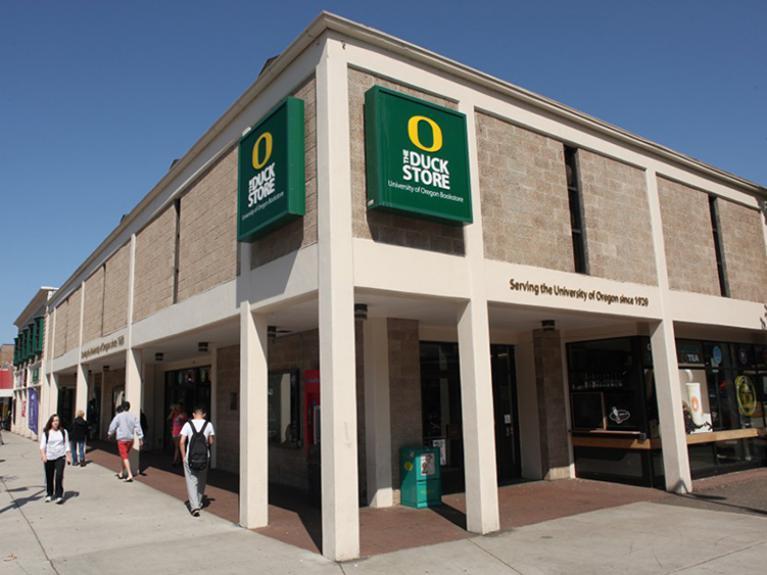Campus bookstore operator relies on cloud to service its loyal ‘Ducks’
No visit to the University of Oregon is complete without a stop at The Duck Store.
The Duck Store opened its doors on the University of Oregon campus in 1920. (The Oregon Duck is the mascot of the University of Oregon's Ducks athletic program). It has since grown into a 13-store fleet, with outposts at sporting venues and malls. It also operates an online store that can be accessed via laptop or mobile devices. In fact, half of its Web traf-fic comes from smartphones and tablets.
Serving students, facility, staff and alumni, the Duck Store sells food, coffee, course materials and apparel. It is also considered the second larg-est arts supplies store in the state. However, more competitors continue to hit the scene — from larger retailers to Amazon and pure plays featuring comparable merchandise and textbook rentals— and each one is trying to steal another piece of the collegiate sales pie.
Meanwhile, legacy systems, including an antiquated front end system, al-so began contributing to this loss of wallet share. These systems made it difficult for users to access data, and green-screen applications made fi-nancials, inventory and point-of-sale reporting a challenge. A lack of in-tegration between ERP and e-commerce platforms forced The Duck Store to run separate, disparate shopping carts for textbooks and general mer-chandise, taking a toll on inventory management.
“Between the competition we face from industry giants and the technolo-gy we are working on, it was increasingly challenging to meet needs of customers,” said Alex Lyons, technology team leader, The Duck Store.
Eager to best service its shoppers, whether they shop in-store or online, The Duck Store needed a new platform that could ensure shoppers and team members could the find products they need. That’s when the retailer transitioned to a cloud-based platform from NetSuite, which is integrated with ERP, order and e-commerce inventory management, POS and the Bronto Marketing Platform. The Duck Store is using NetSuite across all 13 of its locations and online.
Since going live in 2016, the platform has come in extremely handy when supporting game-day sales. “The store can see upwards of $100,000 on a game day,” explained Arlyn Schaufler, The Duck Store’s general manager.
“Midway through the day we can have our warehouse poll our inventory and see in real-time what our needs are,” he said. “We can also pull re-placement merchandise from other locations if needed,” to save the sale.
The platform also unifies its omnichannel operation. Inventory and pur-chasing managers have real-time visibility into 50,000 SKUs, from books to bumper stickers and sweatshirts, providing visibility into what is available and where it resides. From a digital perspective, The Duck Store has reduced its single-page bounce rate by 25%, increased pages viewed per session by almost 40%, and increased time on site by close to 60%.
The platform also enhances its mobile initiatives, as new filtering capabil-ities allow shoppers to conduct product searches by color, size and other variations. It also provide rich, seamless online experiences on any de-vice.
The Duck Store also now has up-to-date status on the fulfillment of any order in the works, whether it is being picked, packed, or shipped. “We love the transparency,” Lyons added.
Meanwhile, in-store pickups and returns of online orders has also been streamlined. In-store personnel now sees real-time inventory, helping the team better fulfill customer requests.
“As a unified solution, NetSuite has enabled us to make the leap towards 360-degree, customer-centric omnichannel commerce,” Lyons said. “We’re able to see customers who shop online and in stores and build loyalty in a broader sense.”
Positioning itself for the future, The Duck Store is currently customizing the platform to manage its complex textbook category. Upgrades will help the retailer optimize inventory and sales across hardcover and digital titles, rentals and buybacks, and new and used volumes.


